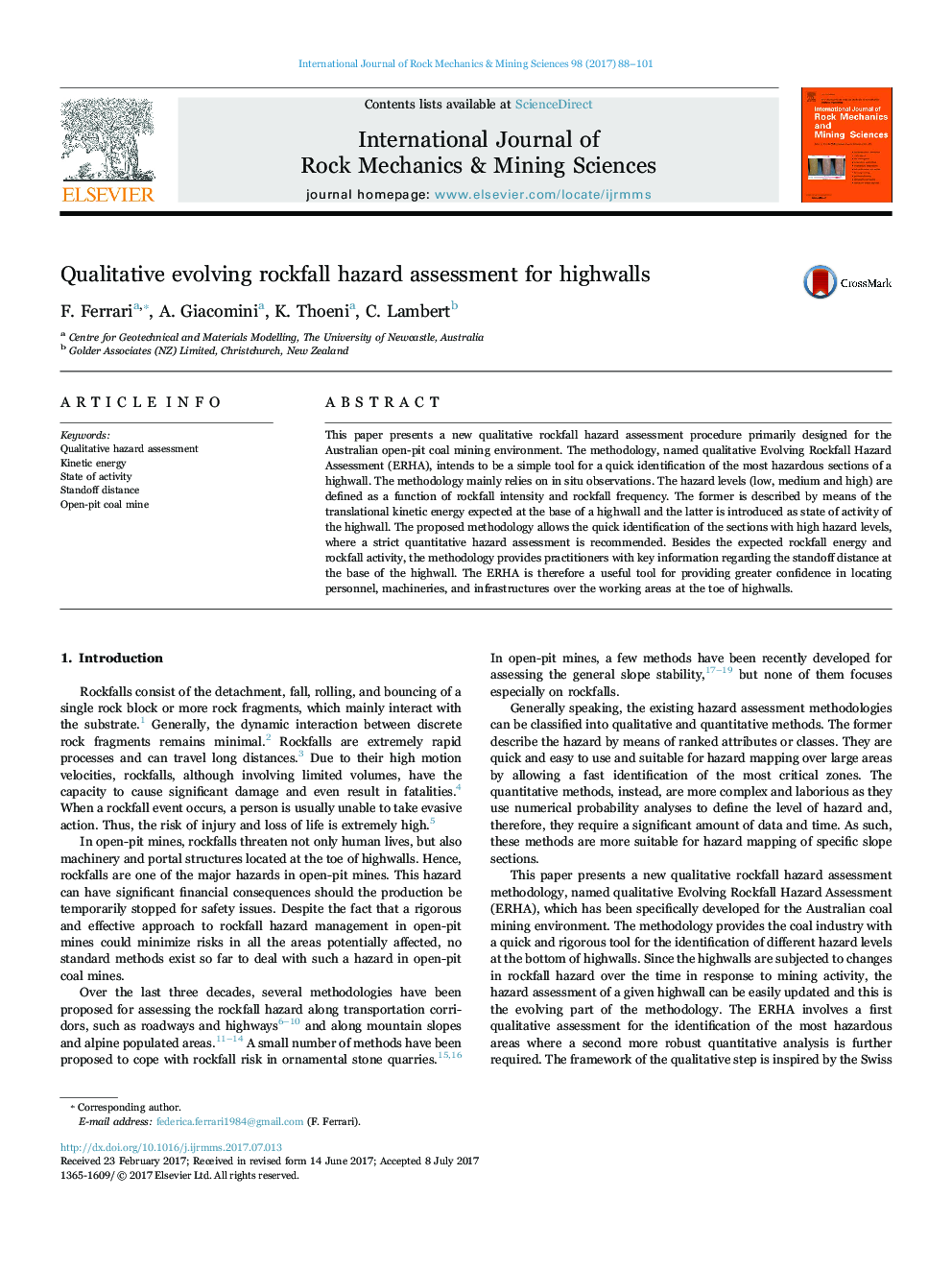| Article ID | Journal | Published Year | Pages | File Type |
|---|---|---|---|---|
| 5020186 | International Journal of Rock Mechanics and Mining Sciences | 2017 | 14 Pages |
Abstract
This paper presents a new qualitative rockfall hazard assessment procedure primarily designed for the Australian open-pit coal mining environment. The methodology, named qualitative Evolving Rockfall Hazard Assessment (ERHA), intends to be a simple tool for a quick identification of the most hazardous sections of a highwall. The methodology mainly relies on in situ observations. The hazard levels (low, medium and high) are defined as a function of rockfall intensity and rockfall frequency. The former is described by means of the translational kinetic energy expected at the base of a highwall and the latter is introduced as state of activity of the highwall. The proposed methodology allows the quick identification of the sections with high hazard levels, where a strict quantitative hazard assessment is recommended. Besides the expected rockfall energy and rockfall activity, the methodology provides practitioners with key information regarding the standoff distance at the base of the highwall. The ERHA is therefore a useful tool for providing greater confidence in locating personnel, machineries, and infrastructures over the working areas at the toe of highwalls.
Keywords
Related Topics
Physical Sciences and Engineering
Earth and Planetary Sciences
Geotechnical Engineering and Engineering Geology
Authors
F. Ferrari, A. Giacomini, K. Thoeni, C. Lambert,
